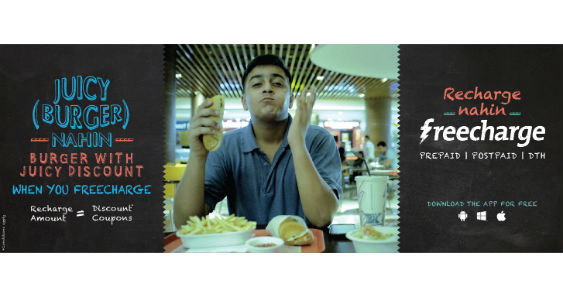When was the last time your computer screen reminded you of a theatre? Possibly never – but then you don’t have the mind of Michał Kobierzewski, creative director of The Digitals in Warsaw.
Michał specializes in making connections between the digital and analogue worlds. This ability may spring from his background: he was originally destined to become a concert pianist.
“I finished high school as a pianist after more than 10 years of music school,” he says. Some saw him as the next Krystian Zimerman, the brilliant Polish classical pianist. “But I wanted to play jazz, modern music, which unfortunately was only available at a music conservatory. I wasn’t patient. I didn’t want to wait.”
At the same time, he was attracted to the growing field of advertising, still a young industry in Poland. “The first TV commercials fascinated me.” He ended up with a Master’s in economics with an advertising specialization. “That gives me a good background for understanding brands’ needs, their aims and how they fit into the world around them.”
Michał’s world is very diverse indeed: he says he’s interested in philosophy, psychology, modern art, movies, books, technology, games – and the theatre. “When I was looking at Flash websites, say ten years ago, I wanted to tell a story in a limited space. I felt that a stage designer faced the same challenge.”
His first job was less glamorous, working on bus-side ads for a small agency, including pasting them on to the bus. Later, a friend invited him to join the interactive agency OS3. “I didn’t understand the interactive world when I joined, but I quickly learned.”
To such an extent that his campaign for the ING bank one a silver Effie in 2008. The following year, he joined the Polish cyber team at the Young Lions in Cannes.
His next stop was Artegence, which he describes as “the oldest and most award-winning agency in the interactive market”. Here he managed three creative teams, building and rebuilding teams and ultimately bringing in at least 10 new clients.
He has been at The Digitals, one of Poland’s fastest-growing interactive operations, for three years. “I built the creative department from scratch. Within one year we won several big pitches for [beer brand] Warka, Hyundai Poland and Amnesty International, and gained awards and distinctions at the most prestigious domestic ceremonies.”
The key to his creative success seems to be his love of clashing points of view and ideas. “As a creative director I’d rather take someone who can build a story, like a novelist, a journalist or a copywriter, and unveil the interactive world to them. That approaches brings amazing results.”
It was how one of the online campaigns he’s most proud of, for Amnesty, was born. It involved trapping a user’s cursor inside a web banner, forcing them for a few moments to experience the helplessness of somebody who’s been wrongly imprisoned.
“It was kind of an experiment – we only got about 450 impressions, but out of those, 50 people signed a petition.”
These days, he says, the big challenge for interactive agencies is storytelling. “Our advantage is that the internet is full of real stories, real insights and real premises. If we’re good observers, we can create campaigns that change the world by answering real needs.”
As an example he cites another of his favourite campaigns, this time for Warka. It was based on the insight that, with many Polish workers taking jobs abroad, fewer friends and families were able to get together in the pub. Via social media, the agency reunited four brothers, three of whom had taken jobs in Ireland, while leaving the oldest alone in Warsaw. A short documentary film told the tale.
Michał says that by solving their problems, brands give customers a reason to become “disciples”.
“In a way brands can be like Robin Hood, using their marketing budget to give something back to the world.”
This article was first published as a monthly Global Headline Maker column at the Epica Awards website.









